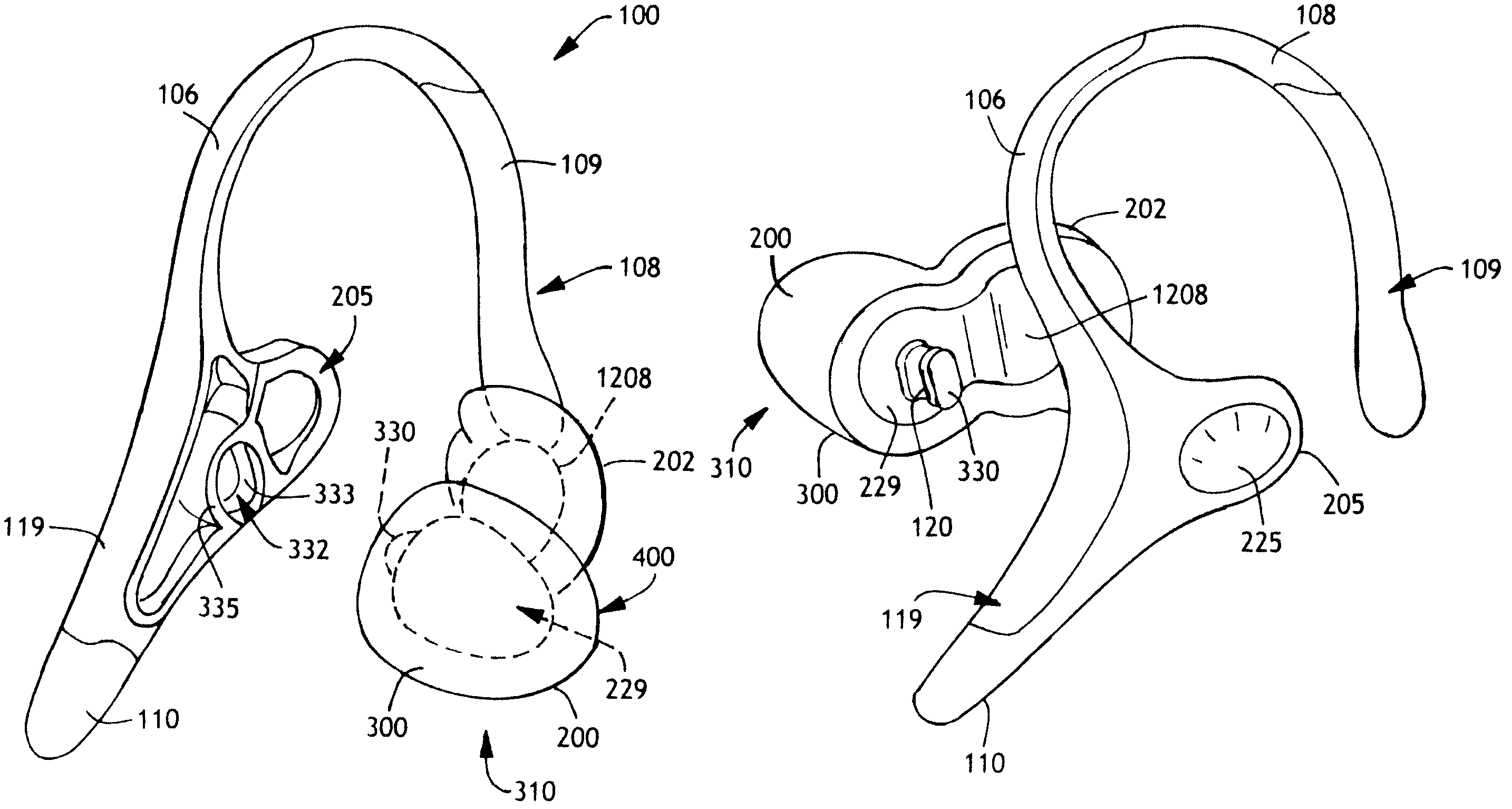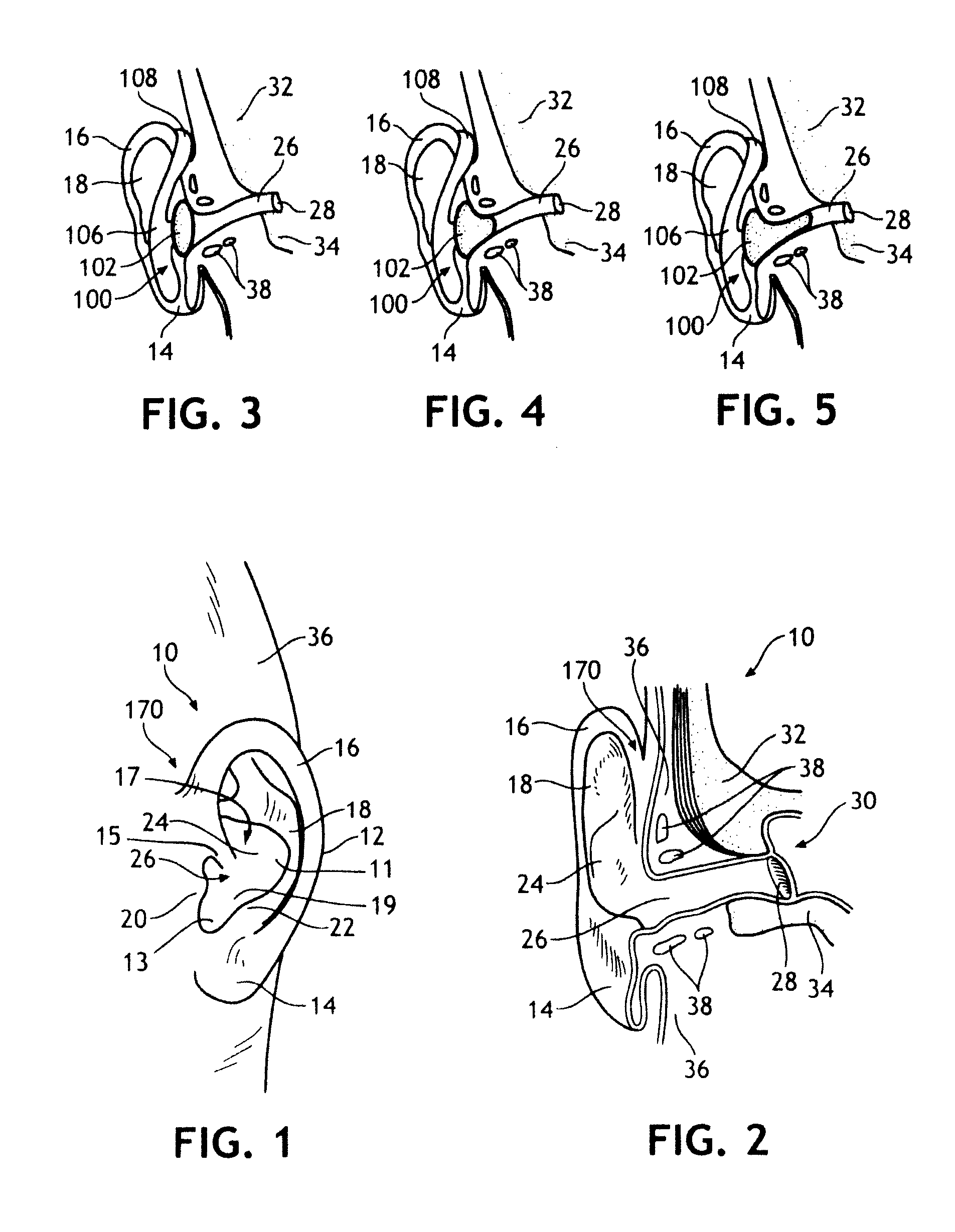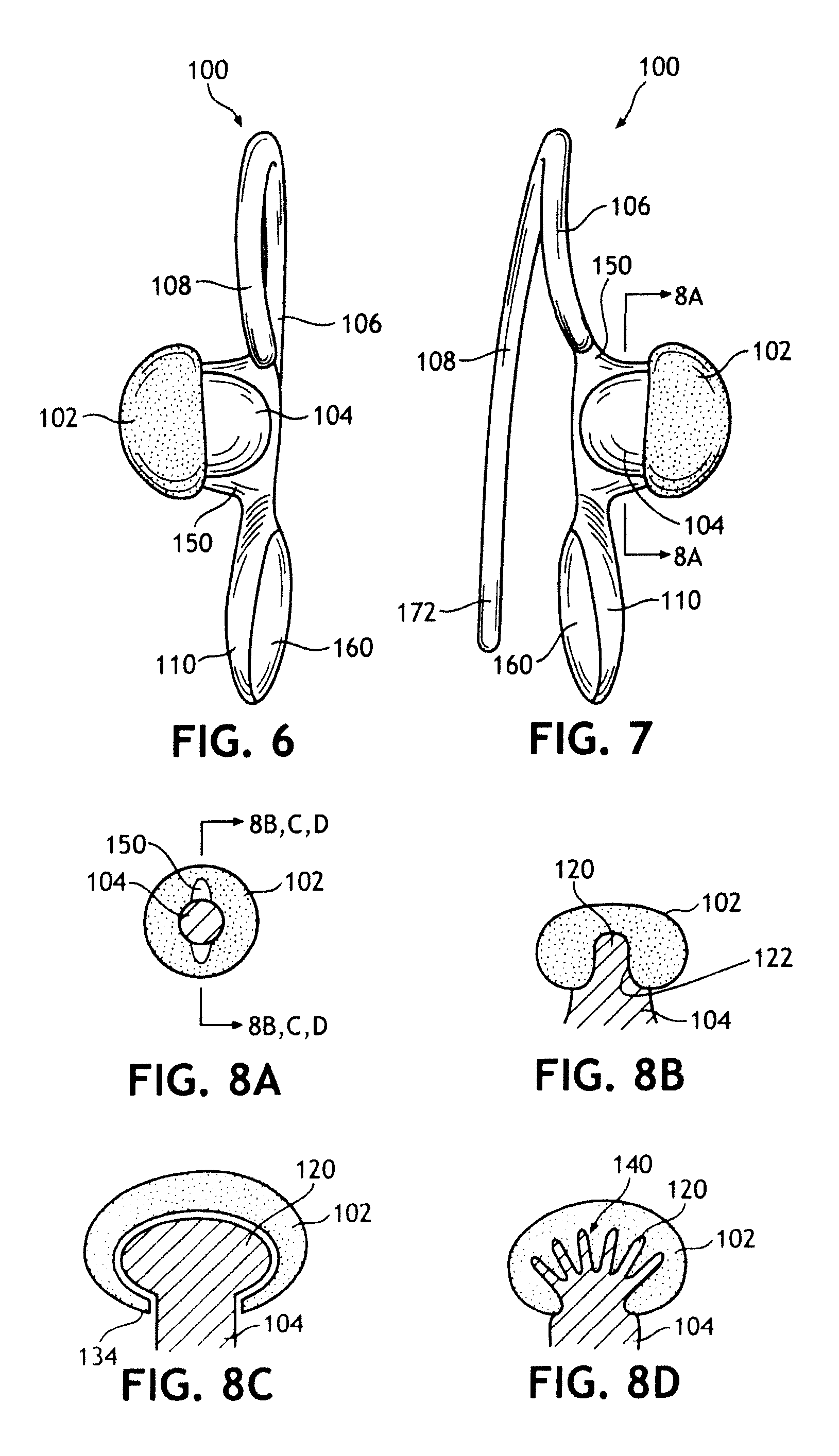Bandless hearing protector and method
a hearing protector and band-based technology, applied in the field of band-based hearing protectors and methods, can solve the problems of traumatic hearing impairment and even hearing loss, impairments that do not respond to hearing aids or surgery, uncomfortable and difficult to insert correctly, etc., to achieve the effect of attenuating the sound in the human ear
- Summary
- Abstract
- Description
- Claims
- Application Information
AI Technical Summary
Benefits of technology
Problems solved by technology
Method used
Image
Examples
third embodiment
[0077]Reference will now be made in detail to embodiments of the invention, one or more examples of which are illustrated in the drawings. Each example is provided by way of explanation of the invention, and not meant as a limitation of the invention. For example, features illustrated or described as part of one embodiment can be used with another embodiment to yield still a It is intended that the present invention include these and other modifications and variations.
first embodiment
[0078]As shown in FIGS. 6-7, hearing protector 100 desirably has a unitary construction, with the possible exception of the plug 102. The neck 104, shoulder 106, handle 110, and arm 108 may be molded from a plastic material having the following characteristics: flexible enough to move the arm 108 to the backside of pinna 12 as neck 104 is positioned near the ear canal 26; durable enough to be used more than one time; moldable, as by injection molding or the like; and steady-state in that it does not exhibit significant loss of stiffness under a continuous load, allowing neck 104 and plug 102 to maintain an effective force toward the ear canal 26. Desirably, a material such as polyethylene is used. However, it is contemplated that the ear clip portion of hearing protector 100 may be manufactured from nylon, plastics such as polypropylene, polyvinyl chloride, polycarbonate; metals such as titanium, steel, or aluminum composites; or elastomer such as silicon, thermoplastic elastomer (T...
second embodiment
[0146]Referring now to FIGS. 36-39, shown is a hearing protector 100 with replacement assembly 310. The view of FIG. 37 is a cross-sectional view of the replacement assembly 310 taken at the longitudinal axis 302 of the x-y plane. The EAM pad 200 on this particular replacement assembly 310 has a stepped domal shape. The stepped domal shape is similar to the domal shape except that it has an added flange 420 surrounding the edge 311 of the EAM pad 200. This flange 420 may be either more or less prominent in both height 424 and thickness 426. For example, the flange 420 shown in FIG. 40 has both a height 424 and thickness 426 that is greater in dimension than that shown in FIG. 36. The purpose of flange 420 is seal the opening of the ear canal 26 to block sound from entering the ear canal.
[0147]As with the previous embodiment, there exists an obtuse angle 402 between the vertical axis 410 and the exposed surface 408 of the pressure plate 1208 (see FIG. 39). However, it is noted that w...
PUM
 Login to View More
Login to View More Abstract
Description
Claims
Application Information
 Login to View More
Login to View More - R&D
- Intellectual Property
- Life Sciences
- Materials
- Tech Scout
- Unparalleled Data Quality
- Higher Quality Content
- 60% Fewer Hallucinations
Browse by: Latest US Patents, China's latest patents, Technical Efficacy Thesaurus, Application Domain, Technology Topic, Popular Technical Reports.
© 2025 PatSnap. All rights reserved.Legal|Privacy policy|Modern Slavery Act Transparency Statement|Sitemap|About US| Contact US: help@patsnap.com



